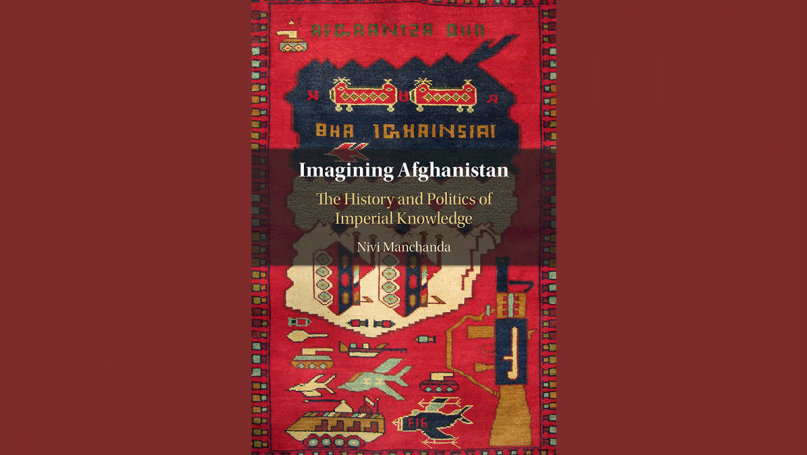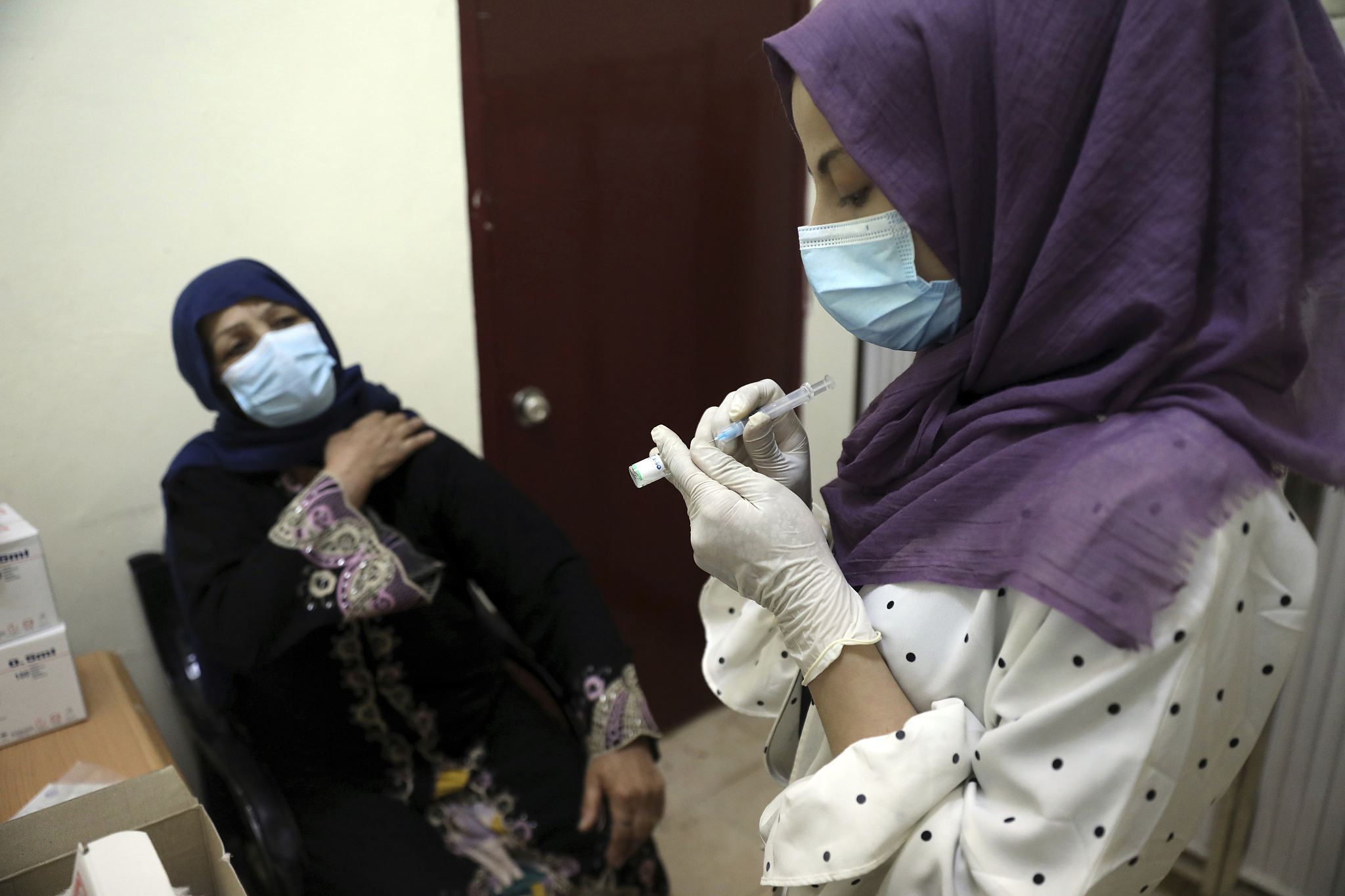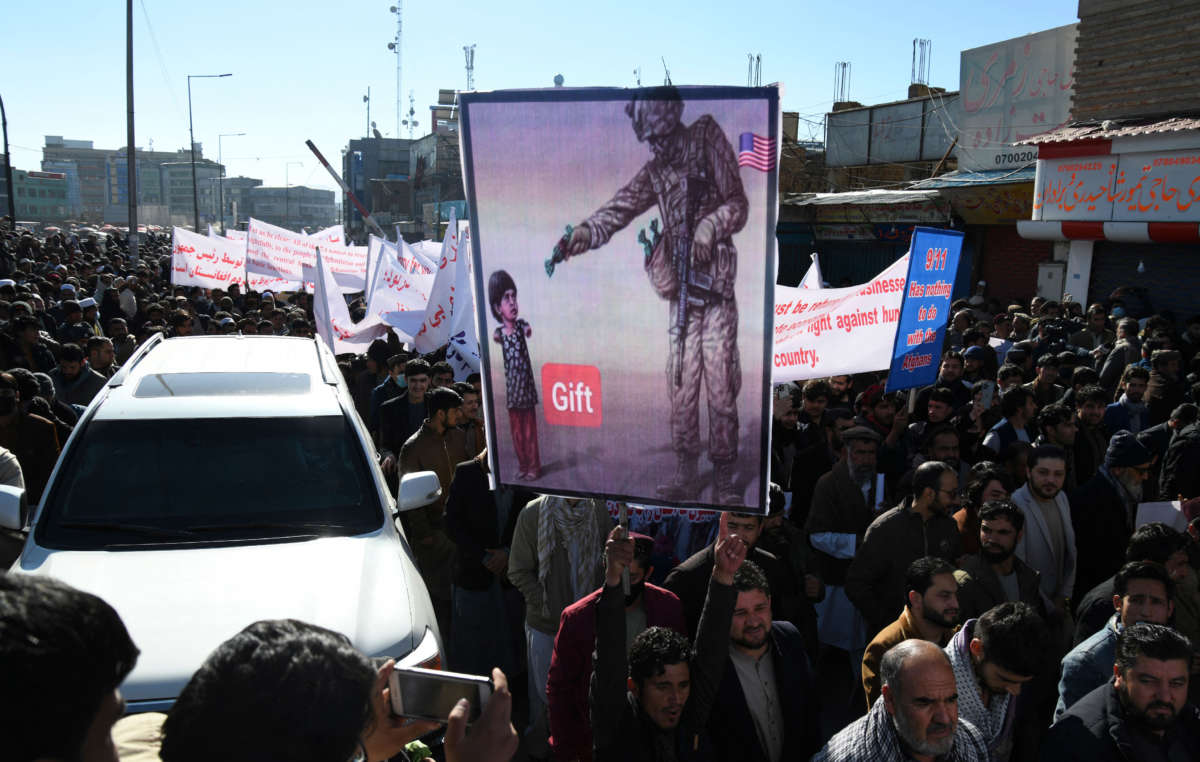Review – Imagining Afghanistan: The History and Politics of Imperial Knowledge
 Cambridge University Press
Cambridge University PressImagining Afghanistan: The History and Politics of Imperial Knowledge
By Nivi Manchanda
Cambridge University Press, 2020
History and the prison-break
In the introduction to After Colonialism, Gyan Prakash was explicit about the need to “pry open the reading of colonialism from th[e] prison-house of historicism”: “For at stake is not simply the issue as to whether or not former colonies have become free from domination, but also the question as to how the history of colonialism and colonialism’s disciplining of history can be shaken loose from the domination of categories and ideas it produced – colonizer and colonized; white, black, and brown; civilized and uncivilized; modern and archaic; cultural identity; tribe and nation” (Prakash 1995, 5). This particular expression of the need to recognise the coloniality of history was articulated in the mid-1990s, a time of a heightened-yet-tense sense of Western supremacy. Not long after, in October 2001, Afghanistan was occupied by a wide international military alliance by the name of “Enduring Freedom”. The ‘operation’ has morphed into an enduring occupation of, and with, Afghanistan. It made the critical re-evaluation of historical knowledge only more urgent than it had already been.
Imprisoned by the fascist regime of Benito Mussolini, Antonio Gramsci made the compilation of an ‘inventory’ the first step for a critical confrontation of historical processes and their traces in ourselves (Said 2003, 25). Imagining Afghanistan is more than an inventory described in Gramsci’s Prison Notebooks. Since 2001 especially, Afghanistan has been turned into a laboratory for twenty-first century intervention and its application of power. The study of Afghanistan, too, has vastly expanded. Afghanistan has been the subject of policy articulation, and it has populated publishers’ catalogues and university curricula, even colouring books for children. Afghanistan exists in public debate, in the entertainment industry and museums. Afghanistan has been thought about a lot, and an ‘idea’ of Afghanistan has taken shape in the Western mind. Imagining Afghanistan engages with this idea through a rich assembly of materials relating to the work of past and present knowledge practitioners, including academics, political analysts and policy-makers – “the scientist, the scholar, the missionary, the trader, or the soldier [who] was in, or thought about, the Orient because he could be there, or could think about it, with very little resistance on the Orient’s part,” in Edward Said’s (2003, 7) terms. The book spans the history of modern Afghanistan from the early nineteenth century, when the country was emerging into the consciousness of British empire builders, to the present. It is a prison-break (in Prakash’s sense) that releases colonialism’s categories and ideas from their (wrongful) captivity in history in order for them to find their intimate place in the community of Western knowledge on Afghanistan.
The imperialism of colonial knowledge cultivation
At its core, Imagining Afghanistan engages with “the hegemonic discourse and its totalising ambitions” about histories of the Afghan state and its peoples (p.5). Woven into the book’s argument are three intersecting threads. To begin with, Afghanistan represents “an intrinsically violent place” in the imagination of the transatlantic Anglosphere (p.3). But, ‘our’ “politics of disavowal” maintain that ‘we’ have nothing to do with it (p.3). A rich “grammar of difference” segregates ‘us’ and the ‘West’ from ‘them’ and ‘Afghanistan’ (p.3). Lastly, this discourse is marked by a “superficial” engagement with Afghanistan’s history and politics, particularly so in times of conflict (p.4). This, to bring the argument full circle, reaffirms Afghanistan’s place in a geopolitical hierarchy whose structure enables and sanctions intervention.
Given the violence inherent in Western knowledge and the widespread, often common-sensical, rationalisation in its application on Afghan bodies, the importance of this critique cannot be underestimated (Savic 2020). The book is an example of “insurgent scholarship”, and an illustration of the need for the continuing decolonisation of imperial/colonial knowledge as a continuous act of resistance in our very own age of imperialism (p.10). Imagining Afghanistan shows the pathways in which the idea and “story” of Afghanistan have come about and taken root. The analysis unsettles with a clear purpose: “‘how is Afghanistan thought about in a way such that it is possible to invade and bomb it?’ and ‘what are the sources of authority that sanction the discourses that make that act of invasion permissible and possible in the first place?’” (p.5).
The book stands on the shoulders of studies that have crossed (and continue to eradicate) the (artificial) disciplinary boundaries between history and international relations in an attempt to make visible the colonial legacies in their combined knowledge systems (e.g. Bayly 2016; Hopkins 2008). Imagining Afghanistan focuses on the intellectual cornerstones of historical knowledge production, and how these were, and continue to be, recycled and cultivated for application in instances of imperialism, racism and war in the present. The analysis draws out the (at best) “lazy” and (at worst) “mercenary” scholarship that has contributed to the reification of Afghanistan as a violent place and failed state allegedly riddled with tribal customs – in short, the scholarship that assists in turning ‘inferior’ Afghanistan into a legitimate object of ‘superior’ Western intervention (p.25). As such, Imagining Afghanistan is a “decolonising intervention” as well as an exercise in auto-decolonisation prompting knowledge practitioners in the humanities and social sciences to “unlearn the colonising impulses of knowledge production in the Western academy” (p.7).
Chapter 1 lays the foundations for the discussion, unearthing and analysing the key constituents of how Afghanistan has been ‘understood’ and ‘made legible’ in a geopolitical sense. Chapter 2 charts the history of ‘Afghanistan’ as a “spatial formation”, exploring also its multiple configurations as a ‘frontier’, ‘buffer’, ‘failed’ and even ‘non-state’ or ‘AfPak’ (p.66). Over time, the palimpsestic space of Afghanistan was reinscribed with arbitrary notions of marginality in the age of colonialism. These Eurocentric lenses of geopolitical organisation make Afghanistan appear ‘different’ and continue to exert their power on ‘our’ imagination, in which Afghanistan features as “an arbitrary blip on the world map, its re-inscription as a space of exception on the fringes of humanity that demands ‘special treatment’” (p.102). Chapter 3 forefronts the ‘tribalisation’ of Afghanistan. It weaves its way from Mountstuart Elphinstone’s inspiration by Scottish clans through increasingly racialised registers to Olaf Caroe’s The Pathans. Whilst the Soviet intervention in the 1980s created independence-loving freedom fighters, Afghanistan has more recently been reduced to tribal assemblages of chauvinistic men with penchants for terrorism and the subjection of women. According to many Western readings, Afghanistan’s tribes have always been ‘inward-looking’ producers of warriors, patriots or terrorists. Chapter 4 is a nuanced critique of Western feminist writing, which has contributed to a reduction of ‘Muslim culture’ by “superimpos[ing] the neat image of a medieval land of barbaric men and tyrannised women over the messy history of the region” (p.175). The urge to ‘save’ Afghan women is closely linked to the same global structures that legitimise patriarchy at the local level. Chapter 5 complements this discussion with a representational survey of Afghan masculinities, singling out representations of Hamid Karzai and the Taliban. The need to classify, label, categorise and, ultimately, deal with Afghan men is a historical trace deeply rooted in colonial enterprise and has “remained true to the wider Orientalist discourse” (p.218).
Imagining Afghanistan is a conceptually brilliant, deeply researched, richly annotated, finely articulated and thought-provoking ‘inventory’: it is decolonisation-as-critique. In its challenge to the cultivation of colonial knowledge as a supporting function to imperialism the book has scholarly as well as political relevance. Its insurgent path is plotted toward a re-imagination of ‘Afghanistan’. But there is work to be done, and Nivi Manchanda reminds us of the necessity to rethink ‘liminal’ or ‘frontier’ spaces as well as their constructions as imperial ‘peripheries’ (p.103; see e.g. Hopkins 2020). This process of re-centring requires the production of fitting intellectual tools that are not rooted in colonialism’s own centres, such as India. There is also the need to bring the Anglospheric Afghanistan of this book into a comparative framework with other imperial imaginaries, such as Russia’s.
Auto-decolonisation / decolonising ourselves
In addition, the book has an important message to all knowledge-practitioners: we cannot escape the past, but we are obliged to change the way we think about its knowledge systems. True to its thought framework, Imagining Afghanistan is explicit about its engagement with ‘story-telling’ and ‘sense-making’. It firmly incorporates the dialogic making of modern empire and ‘frontiers’, centre and ‘periphery’ into its larger make-up (p.10). At a critical historical moment, Imagining Afghanistan is also about the stories ‘we’ tell about ourselves and about academia’s role in an age of heightened ‘culture wars’ and ‘post-truth’. In this sense, the book is as much about what makes war, ‘(un)lawful killing’ and murder in ‘our’ name possible on a global scale as it is part of a discussion on racism closer to home. However strong the desire to incarcerate history – or the urge to throw away the keys – may be in the present, we need to engage more with colonial history. Orientalism signifies the power of the self to create constitutive knowledge of the other. What is too often and conveniently forgotten is that power begets responsibility and accountability. This book makes for essential reading for every knowledge-practitioner, and particularly those studying or ‘working on’ Afghanistan. Because we have the power to construct ideas and narrate stories that are acted upon, we also have a responsibility to recognise the coloniality of our knowledge as the basis for its sustained deconstruction in the first place. We can level the power of imperial knowledge by critiquing one colonially woven idea at a time. That process demands acts of auto-decolonisation from all of us if we want to avoid forms of complicity, conscious or otherwise, in physical or epistemological acts of imperial violence.
References
Bayly, Martin J. 2016. Taming the Imperial Imagination: Colonial Knowledge, International Relations, and the Anglo-Afghan Encounter, 1808-1878. Cambridge: Cambridge University Press.
Hopkins, Benjamin D. 2020. Ruling the Savage Periphery: Frontier Governance and the Making of the Modern World. Cambridge, Massachusetts: Harvard University Press.
Hopkins, Benjamin D. 2008. The Making of Modern Afghanistan. Basingstoke: Palgrave Macmillan.
Prakash, Gyan. 1995. ‘Introduction: After Colonialism’. In After Colonialism: Imperial Histories and Postcolonial Displacements, 3–17. Princeton: Princeton University Press.
Said, Edward W. 2003. Orientalism. London: Penguin.
Savic, Bojan. 2020. Afghanistan Under Siege: The Afghan Body and the Postcolonial Border. London: I.B. Tauris.
Further Reading on E-International Relations
- Review – Race and Racism in International Relations
- Review – Decolonizing Politics: An Introduction
- Review – Eurafrica: The Untold History of European Integration and Colonialism
- Review – The Burdens of Empire: 1539 to the Present
- Review – Imperial Subjects: Citizenship in an Age of Crisis and Empire
- Review – Reading the Postwar Future: Textual Turning Points from 1944



